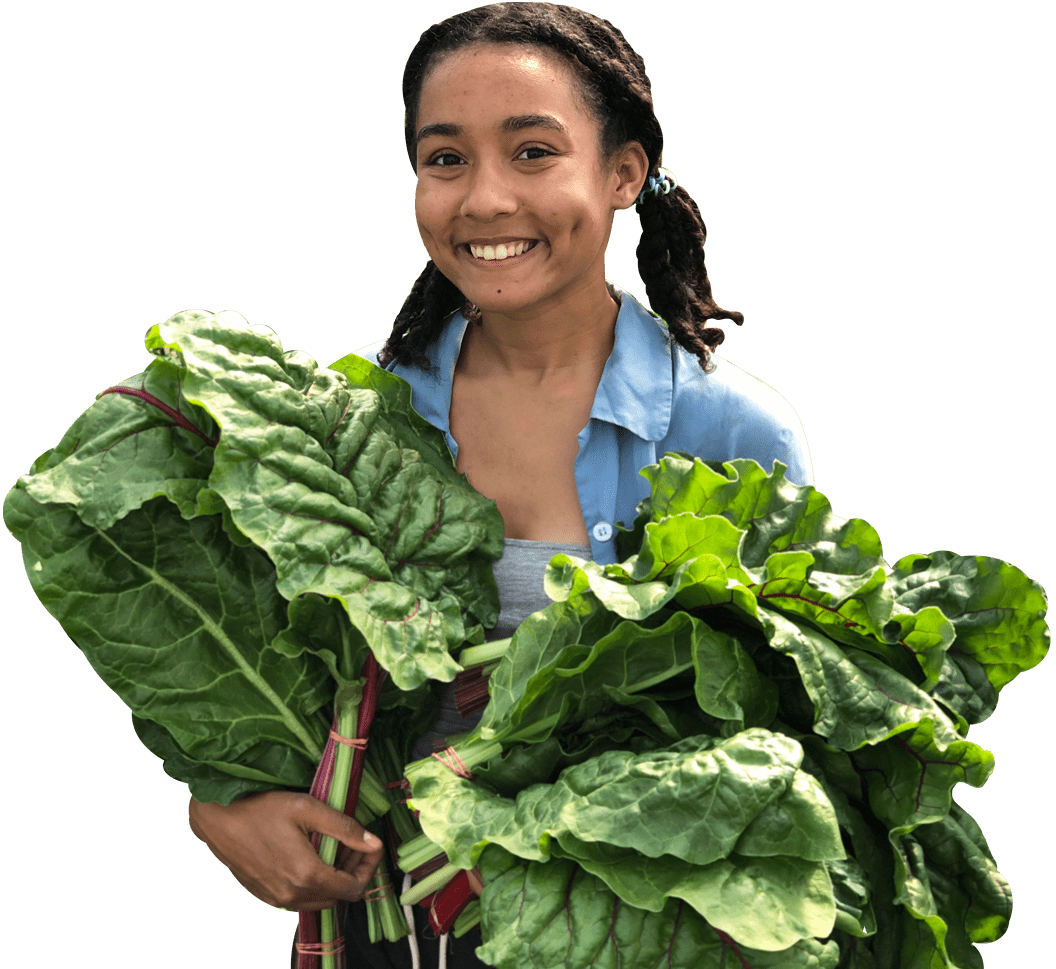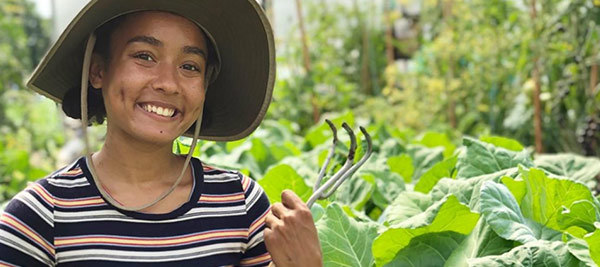FEATURED FARMER:
CHEYENNE SUNDANCE
Meet Cheyenne Sundance – a young, Black, vibrant force of mother nature from Toronto – who is defying the status quo.
The average age of a farmer in Canada is 55. Cheyenne is 23.
Land access and ownership is nearly impossible for Black farmers to aquire due to intergenerational and institutionalized discrimination and injustice. Cheyenne currently leases space in Toronto where she nurtures her organically grown greenhouse produce, but was able, as of last month, to raise $30,000 via crowdfunding to secure the 20% down payment needed for a farm property outside of Ontario. She is just on the cusp of being a landowner!
“Farming was the last thing I ever wanted to be when I grew up. I always wanted to be an actor or in creative arts.”
But instead of finding mentorship and a safe place to learn and grow, Cheyenne’s highschool experience was full of discrimination. She tried three different highschools, each one worse than the one before it. So she left, and this is where her journey to the farm would begin.
She laced up her dusty boots and at the ripe age of 18 she packed her bags and joined her friends on a trip to Cuba where they lived in a self-sustaining rural village. Here she would learn not through the aged pages of used books and jaded professors, but through the land. Her greatest teacher became the ecosystem. Food sovereignty, accessibility, and patterns of livestock intrigued her and her curiosity and her drive to learn more became insatiable.
After backpacking throughout Canada, she finally landed back in Toronto and got a job at a local grocery store. As a product of her own environment, she started to learn more about the local food system. “I began to notice the disparity between who received income from within that system. The store would only buy from established, white farmers with wealth who had been doing it for 60 years. They weren’t willing to support the small young farmer that just started out.”
Once Cheyenne began to see the injustice, she couldn’t unsee it.
From day one Cheyenne has been laser-focused on disrupting the norm in order to provide living proof that it is possible to be a farmer, own land, get paid a living wage, and support a team with a living wage. She set her intention to serve as a source of revitalization to the soils underfoot and as an abundant supplier of an overflowing plate of healthy food for her undernourished local community.
Since the beginning of her experience as a farmer, she set an intention to learn and grow food with youth and people of color. Then, last year, an opportunity presented itself to take over a plot of land for a local church, so that’s what she did. This small community plot would be the start of an innovative program that is now thriving and in high demand, called Growing in the Margins.
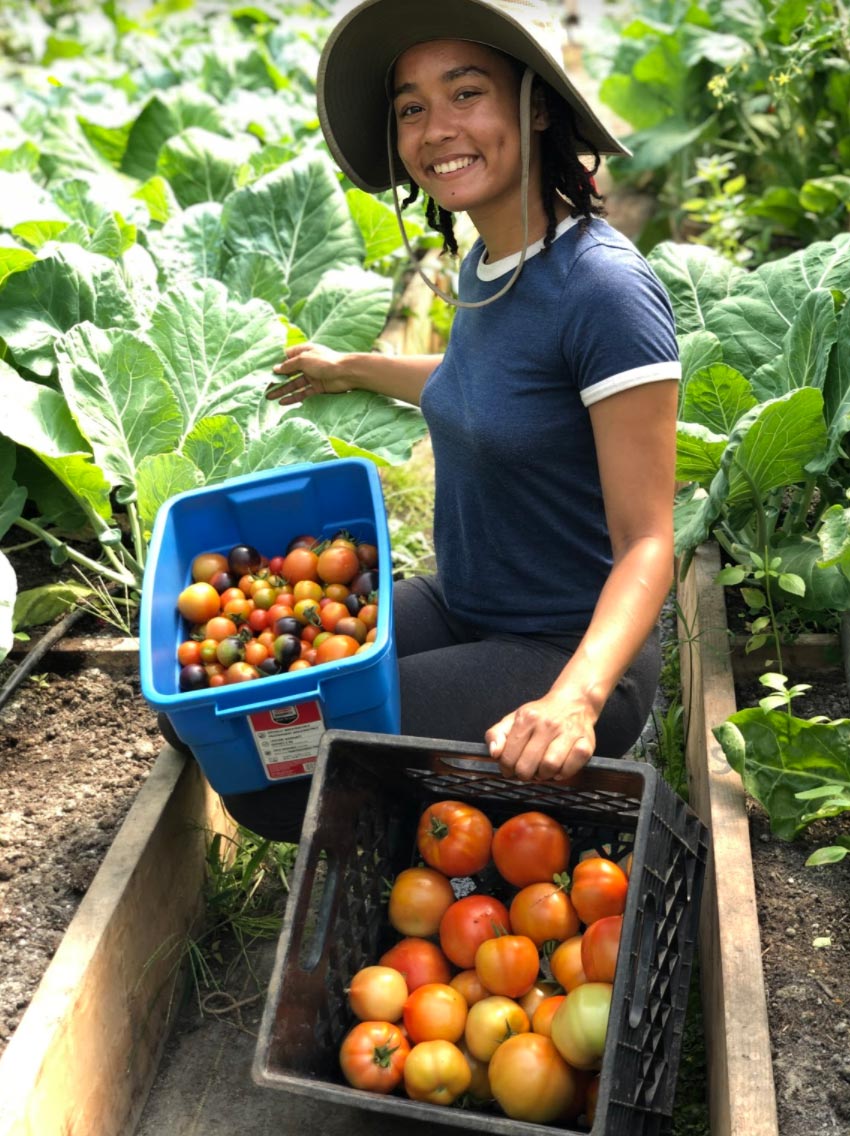
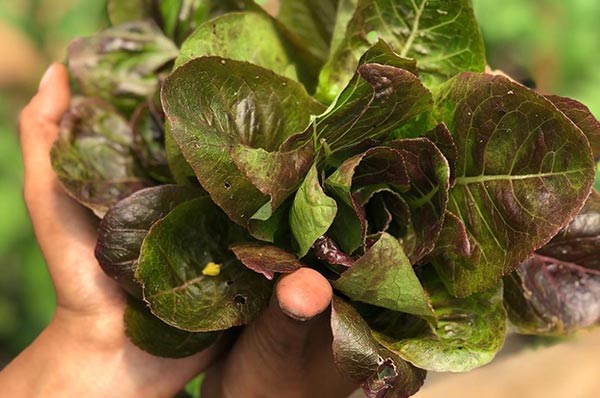
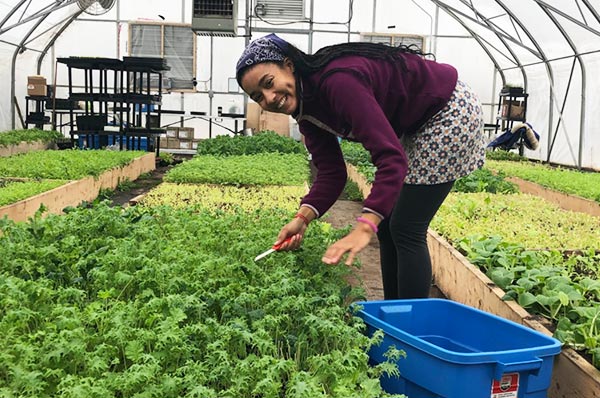
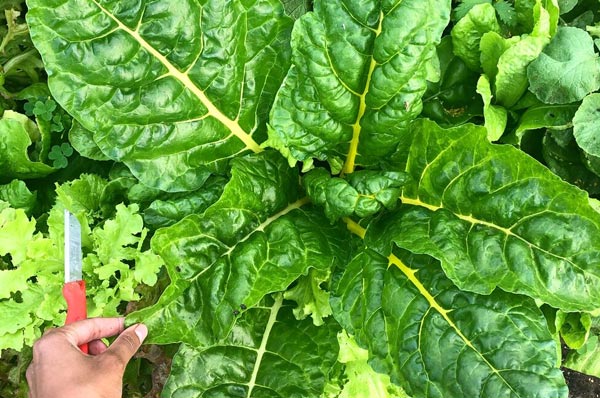
Cheyenne believes a resilient food system requires it to be resilient for all, not just those with power and privilege who have access to education, rural farm internships, and land, “At 23 years old, I have known these oppressive realities within the food system since I was a child. Those who are dispossessed within the food system need to have the tools and guidance to be supported in starting their own food sovereignty and urban farm projects for their communities to ensure justice and resiliency.”
Nearly 50% of participants in Growing in the Margins now work in urban agriculture. Once these participants had the skills and the knowledge to give them access to opportunities that were previously out of reach, Cheyenne’s realization hit. Knowledge and empowerment were the solution. The biggest barriers for her and her community, she realized, are land access and education. At the time, she knew she didn’t have the wealth to acquire land (yet) but what she did have was knowledge to share. From this point on, Cheyenne made sure she was actively growing and selling food but also growing opportunities for education, empowerment and growing community.
“Without financial support from a legacy of privilege like so many white people have, so many people give up, but I refuse to fold to that reality. I just decided I can’t go to school so I’ll just keep teaching myself so I can teach others and change the reality in the process.”
Cheyenne’s walk of life, even at such a young age, has been dedicated to taking on unchartered change so future generations have a way to navigate the possibilities of healing, prosperity and community that can come with working with the land. Currently there aren’t any avenues, specifically in the city, for someone who can’t drive out to intern at a rural farm or go woofing. Recognizing this disconnect empowered Cheyenne to provide education in the city, where the people are living.
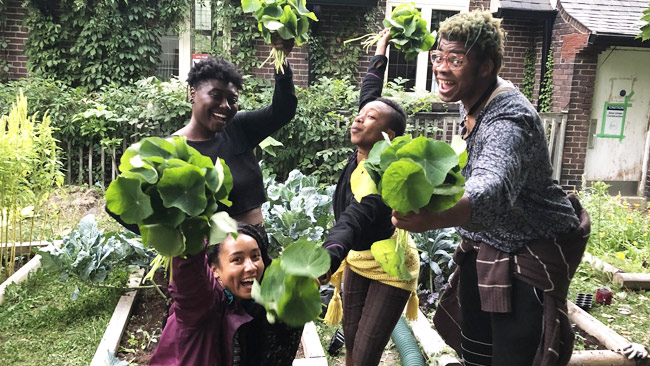
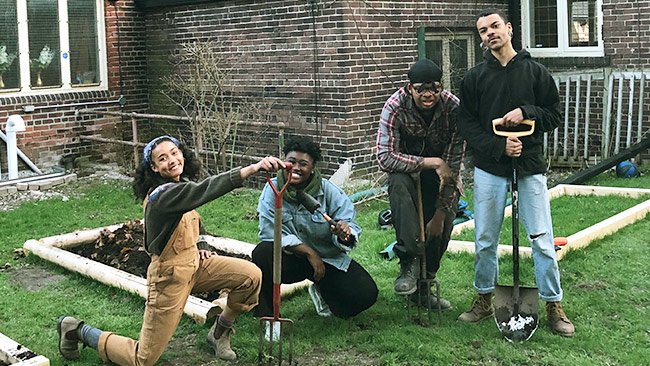
Partnership with allies has been the next level of depth to Cheyenne’s work. With her lived experience being one that doesn’t offer a legacy of wealth, privilege, or land, she’s recognized early on that white allies are not the enemy. They serve as collaborators in her vision by sourcing land for her and her students. Currently she has access to 6,000 sq ft at York University in Toronto that she has parcelled off 500 sq feet spaces for her students to practice and take ownership in the farming experience.
Cheyenne’s endeavors have been done at a grassroots level because urban agriculture has not been embraced by the city of Toronto at the policy level.
“In Toronto, we have hardly any rights of urbanism. We don’t even have an urban agriculture department. When people push for chickens, they get laughed at. I think it is still because the City of Toronto doesn’t see it as a way to create a resilient food system. But it’s also on everybody to do their part, because food is connected to a lot of things – mental health, to poverty, to income, and without creating a strong resilient food system, people are going to be having communities broken apart and segmented by food access.”
In addition to Growing in the Margins, Cheyenne runs her own farm school that is open to the radical, the gardener, the activist, the student, the parent, the environmentalist, the free thinker, the garden dreamer, the apartment dweller and everyone in between.
“A resilient system includes rural farming, but people need to realize it’s also urban farming. To forget that a city center needs food and space to grow, is to say, well, people in the city can just be fine with pavements and accessing food at a distance. But the beauty that policy leaders don’t see is that having agriculture right in the city, allows children and youth to start to see where the food is grown, and then see themselves in agriculture. This, I believe, is why you see a lot of rural farmers who are younger. They grow up on farms, and then they want to be farmers, because they see their parents do it. They have a mentor or they have something to look up to. But for kids in the city, especially racialized children, we never see ourselves in agriculture. We only see ourselves in positions of exploitation through migrant workers.”
A lack of successful, Black, female farmers in Toronto furthered Cheyenne’s drive to become one so that marginalized kids could see what’s possible in urban agriculture instead of the status quo.
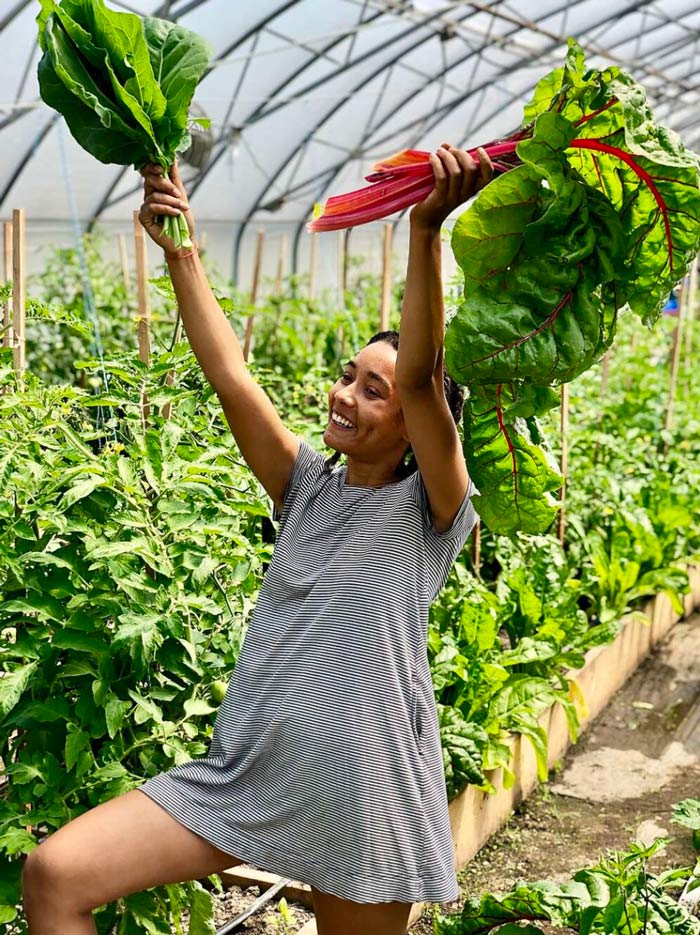
A survey done by Andria Jones-Bitton, an associate professor from the University of Guelph who specializes in farmers’ mental health found 45% of Canadian farmers surveyed fell into high-stress categories. Fifty-eight percent met the definition of anxiety, while 48 per cent could be considered depressed making the risk of burnout severe. It also estimated that Canada’s farm community sees 20-30 percent more suicides compared to other sectors.
You can feel the human element of those statistics in Cheyenne’s reflections from that stressful time, “I had a mental breakdown. I had to cancel my CSA early because my crops had so many pest issues and the disappointment was devastating. There was no support. I couldn’t get any of the grants out there and every dime had to go to my lease. I’d be working 50 hours a week plus a one hour commute both ways using public transportation. The stress, exhaustion and pressure to provide was real, and I didn’t have a way to recover.”
Cheyenne wants to change the culture of farming so it is based on community connection and support so when new farmers like her need mental health support, there is a safe place to land.
The first step? Land ownership.
The going rate for farmland in Ontario is half of one million dollars for 4 acres. If you don’t have a solid downpayment, it’s nearly impossible to get started. Cheyenne realized she would have to circumvent the system and combine hard work, aggressive saving, and a call to action to allies and her community to donate toward a down payment. Cheyenne has since raised $30,000, the remaining amount she needed for a down payment to own a beautiful farm property in Ontario. This land will be a safe haven for marginalized people that want to get their hands dirty and take on a proactive leadership role creating food sovereignty. You can donate to Cheyenne’s fund to help her purchase the remaining supplies she needs here. She’ll officially be the owner of farmland and a farmhouse in a matter of weeks.
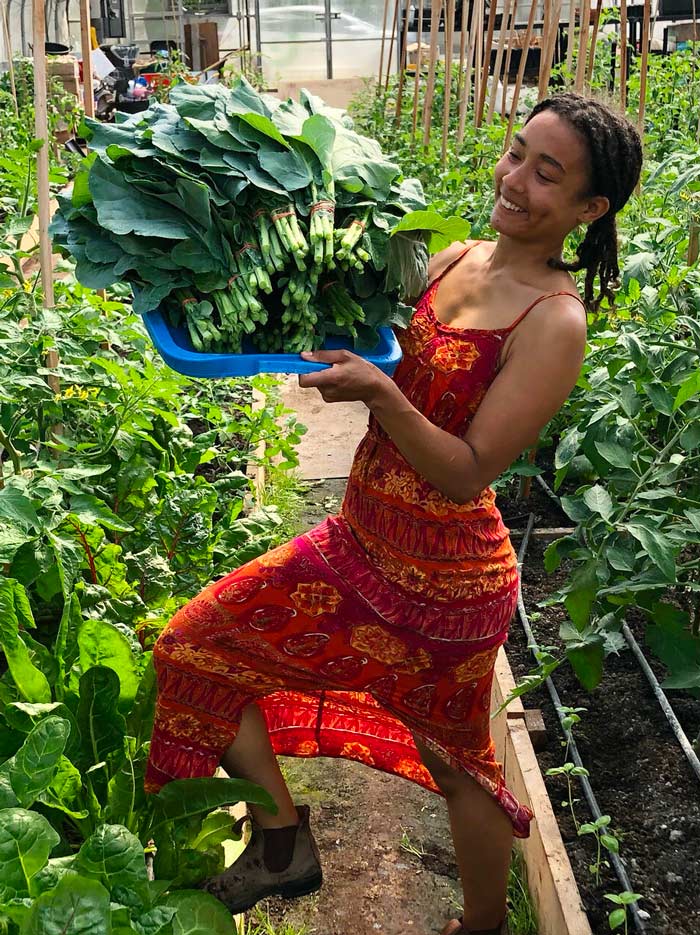
Shortly after COVID hit and it became clear every community in the world was going to experience the fact that food systems have incredible shortcomings and it was clear to see the holes exposed in the system with the pressures of COVID. With a new awareness of the importance of food independence rising in the headlines and in her local community, Cheyenne saw an opportunity to both benefit community members with fresh produce grown on their own lawns, but also to activate her team of rising farmers on fertile spaces for learning and nourishment. And from this, “Liberating Lawns” emerged, a yard sharing project of Sundance Harvest that matches prospective food growers with landholders so that their lawns can be liberated!
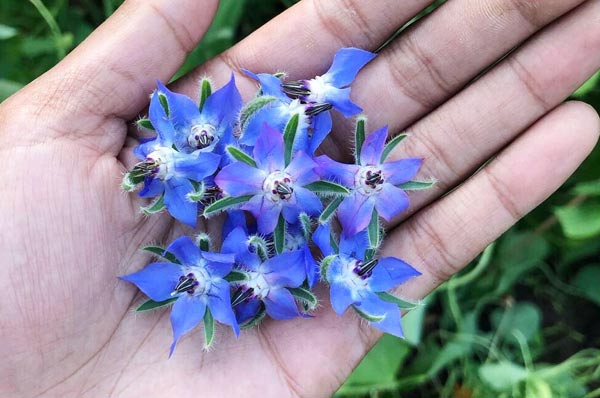
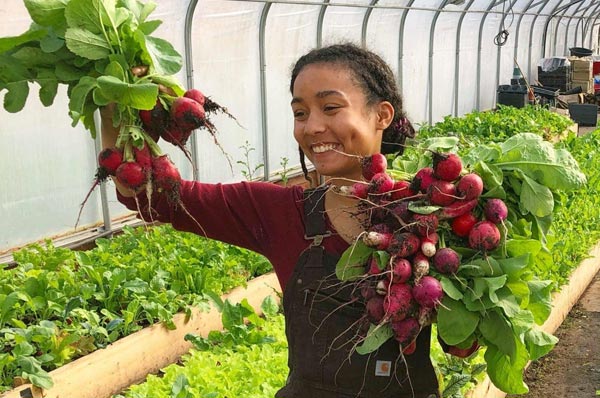
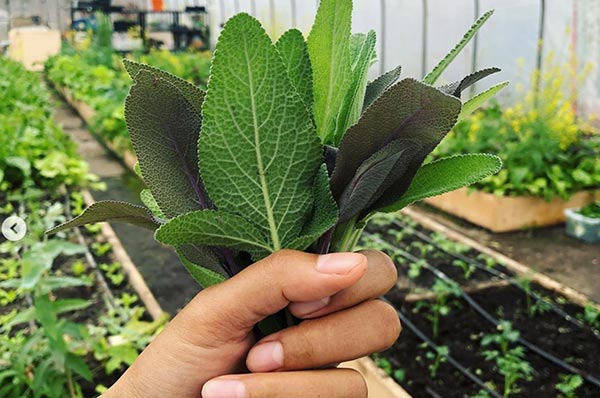
The Grower and Landholder make an agreement about how to share the produce. No money is allowed to be charged for usage of yard sharing, instead the Grower gives the Landholder a portion of their produce in exchange to be able to grow in the space. This percent of food exchange will be determined by the intake forms filled out by both the Grower and Landholder.
The Grower produces food for themselves (or to provide extra income) and the Landholder makes good use of their yard space while receiving fresh food grown on their own lawn.
Yard Sharing through Liberating Lawns is helping increase local food security and builds resilient communities.
With a farming footprint as powerful as this at the young age of 23, we are in awe of Cheyenne’s progressive vision and relentless dedication to hand grow this new reality so the youngest of generations see this way of communing together on land and on plate that is fair, just, independent, and empowering and can see themselves as a part of it too.
